EducationPlus in China
The EducationPlus exhibition was held in Changsha, Hunan province, China from 16 to 18 August 2023. The iMOVE contact point in China, together with AHK Greater China's VET department, attended the exhibition and conducted interviews with a number of Chinese vocational schools as well as German and Chinese vocational education and training institutions.
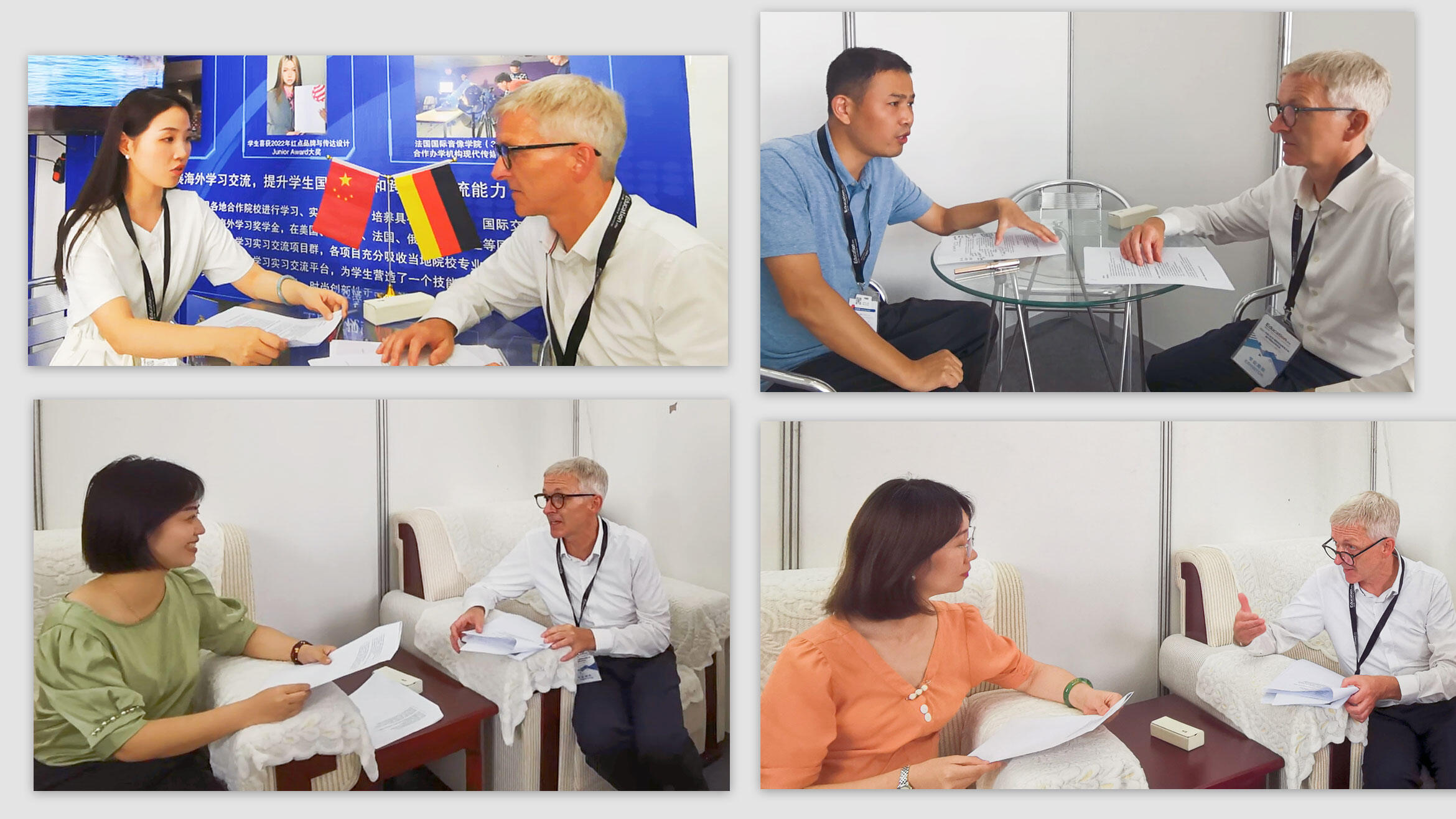
Dr. Tido Janssen (pictured right in each case) interviews representatives of vocational schools and vocational education and training institutions
The EducationPlus exhibition is organised by Landesmesse Stuttgart GmbH and has been developed out of didacta, an international education and training exhibition in Europe. EducationPlus focuses on the vocational education and training market segment in China. Since 2016, the exhibition has been held successfully in the cities of Nanjing, Guangzhou, Xi'an, Qingdao and Suzhou (Taicang).
In 2023, 186 exhibitors and vocational schools from ten countries and regions took part in the event and recorded over 3,000 industry visitors. The German Pavilion was one of the exhibition highlights, accommodating around 30 German organizations and vocational education and training institutions. It was supported by the Federal Ministry for Economic Affairs and Climate Action (BMWK) and the Association of the German Trade Fair Industry (AUMA).
iMOVE attended the exhibition together with the VET department of AHK Greater China and conducted interviews with a number of Chinese vocational schools as well as German and Chinese VET institutions. Our iMOVE contact point in China provides first-hand information on the current situation and on the future of vocational education and training (VET) in China.
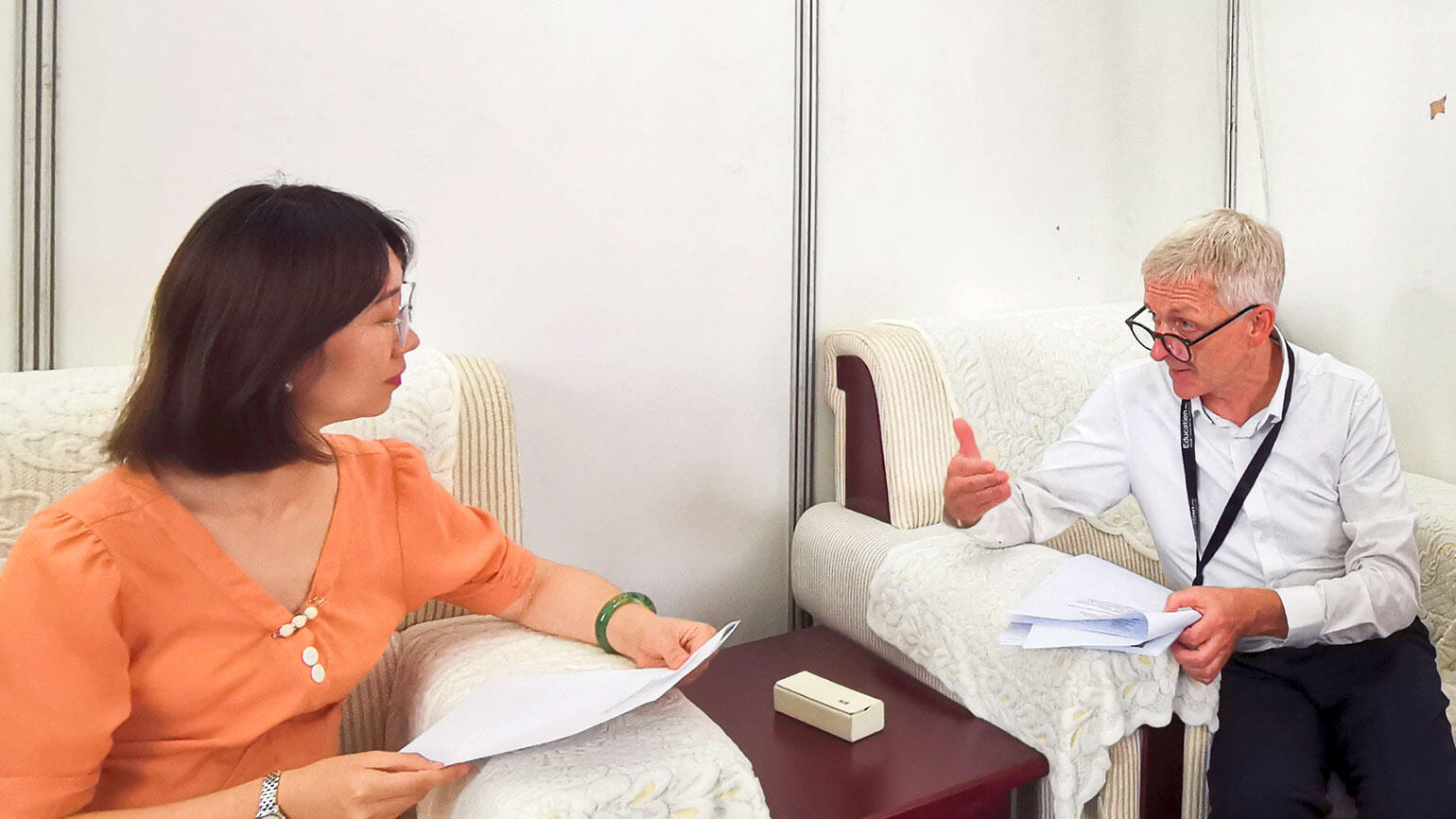
Representative of the EBG (European Training Centre for Work and Society)
VET: wide range of opportunities and a market with great potential
Interviews conducted with vocational schools in China and VET institutions in both countries revealed an optimistic view of the development of VET and of the training market in China.
Their confidence is based in part on the sustained positive effects of political measures on vocational education and training. In 2022, the Vocational Education Law of the People's Republic of China was revised for the first time since its publication 26 years ago. The law places emphasis on the equal status of vocational education and training and general education, the increased integration of industry and education, and on cooperation between schools and businesses.
In terms of implementation, the General Office of the Chinese Communist Party Central Committee and the General Office of the State Council of China have issued regulations such as "Statements regarding support for the high-quality development of modern vocational education and training" in which standards have been defined. By 2025, the number of newly enrolled students with a bachelor's degree at vocational education and training institutions must comprise at least ten percent of the total number of newly enrolled students in higher-level VET.
The labour market in China on the other hand is huge and the Chinese Development and Reform Commission has set the objective to "establish a modern industry system characterized by intelligence, sustainability and integration and which must have integrity and be progressive and secure". The demand for highly trained skilled workers in China will continue to increase as a result.
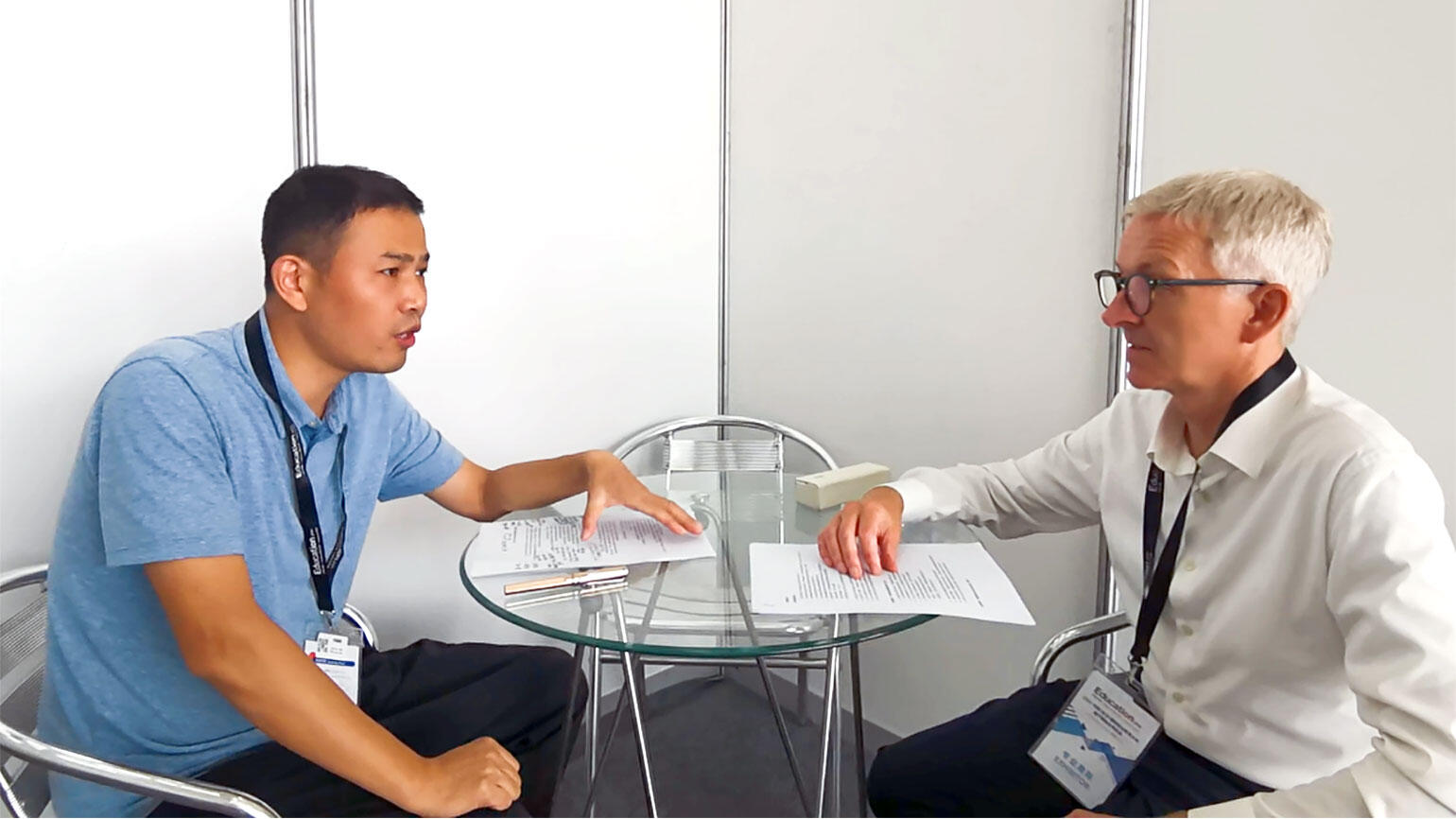
Representative of a vocational school in the Jiangsu province
VET: wide range of opportunities and a market with great potential
Interviews conducted with vocational schools in China and VET institutions in both countries revealed an optimistic view of the development of VET and of the training market in China.
Their confidence is based in part on the sustained positive effects of political measures on vocational education and training. In 2022, the Vocational Education Law of the People’s Republic of China was revised for the first time since its publication 26 years ago. The law places emphasis on the equal status of vocational education and training and general education, the increased integration of industry and education, and on cooperation between schools and businesses.
In terms of implementation, the General Office of the Chinese Communist Party Central Committee and the General Office of the State Council of China have issued regulations such as “Statements regarding support for the high-quality development of modern vocational education and training” in which standards have been defined. By 2025, the number of newly enrolled students with a bachelor's degree at vocational education and training institutions must comprise at least ten percent of the total number of newly enrolled students in higher-level VET.
The labour market in China on the other hand is huge and the Chinese Development and Reform Commission has set the objective to "establish a modern industry system characterized by intelligence, sustainability and integration and which must have integrity and be progressive and secure". The demand for highly trained skilled workers in China will continue to increase as a result.
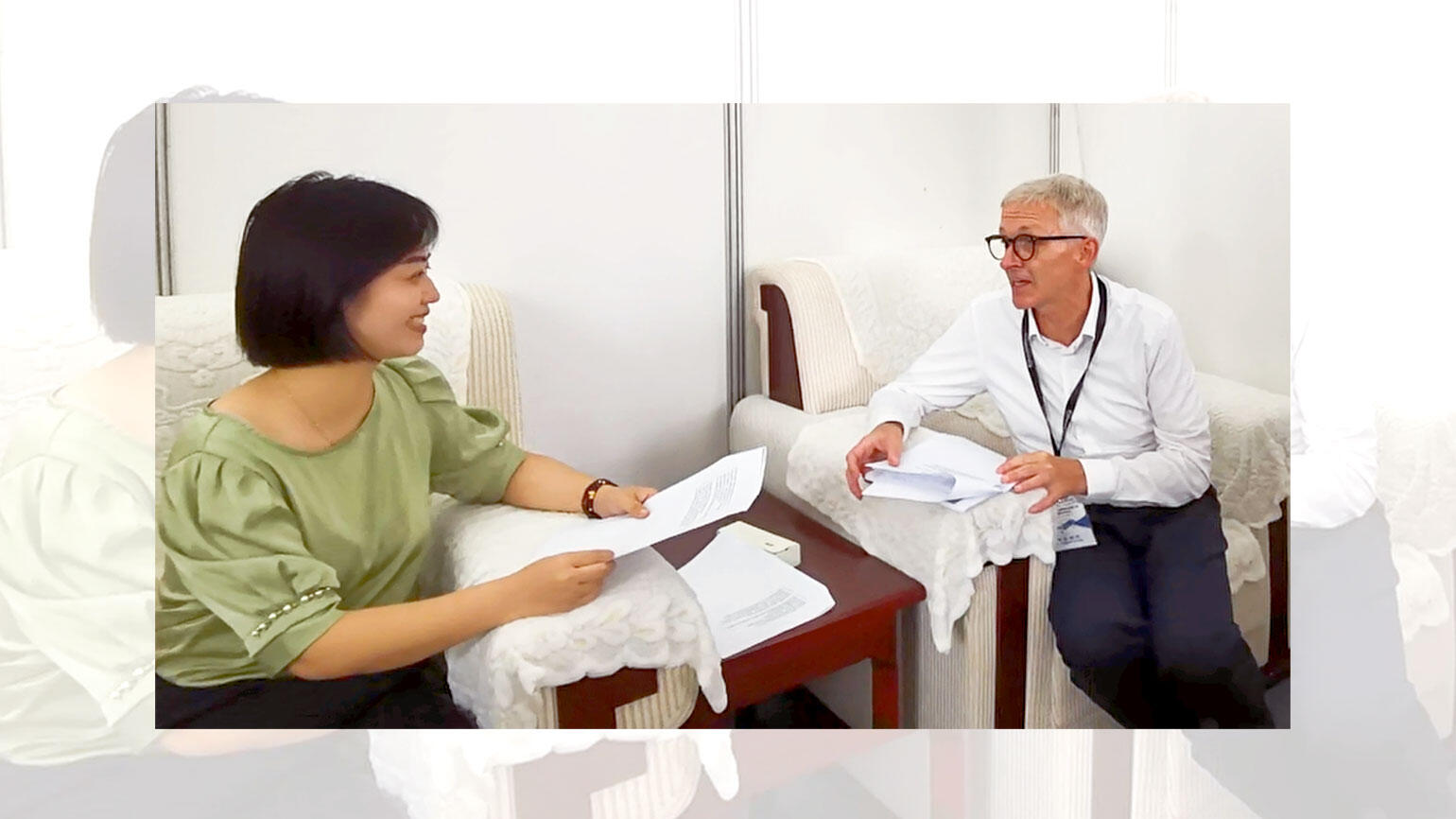
Representative of a Chinese vocational education and training institution in Hunan province
Vocational schools expect more support given the many challenges
Vocational education and training in China must still overcome a range of different challenges.
The schools interviewed, for example, generally take the view that a lack of appreciation of VET and doubts regarding employment opportunities after training still pose the major challenges.
In Chinese society, there is a strong desire for knowledge and for at least a bachelor’s degree as proof of having acquired this knowledge. This is influenced by the historical imperial civil servant examination system and by the generally high expectations parents have of their children. The result is that pupils only opt for vocational schools if there are no "better" alternatives.
Also, increased numbers of vocational school teachers are still needed in some regions. Business participation in vocational education and training also needs to be strengthened as does the financial support businesses receive for this involvement. The schools are looking forward to an increased number of "contract classes" and of "apprentice classes". This is resulting in significant demand from schools for the integration of theoretical and practical training in the development of curricula and training units.
The development of digital learning resources, accelerated by the coronavirus pandemic, also needs to be continued.
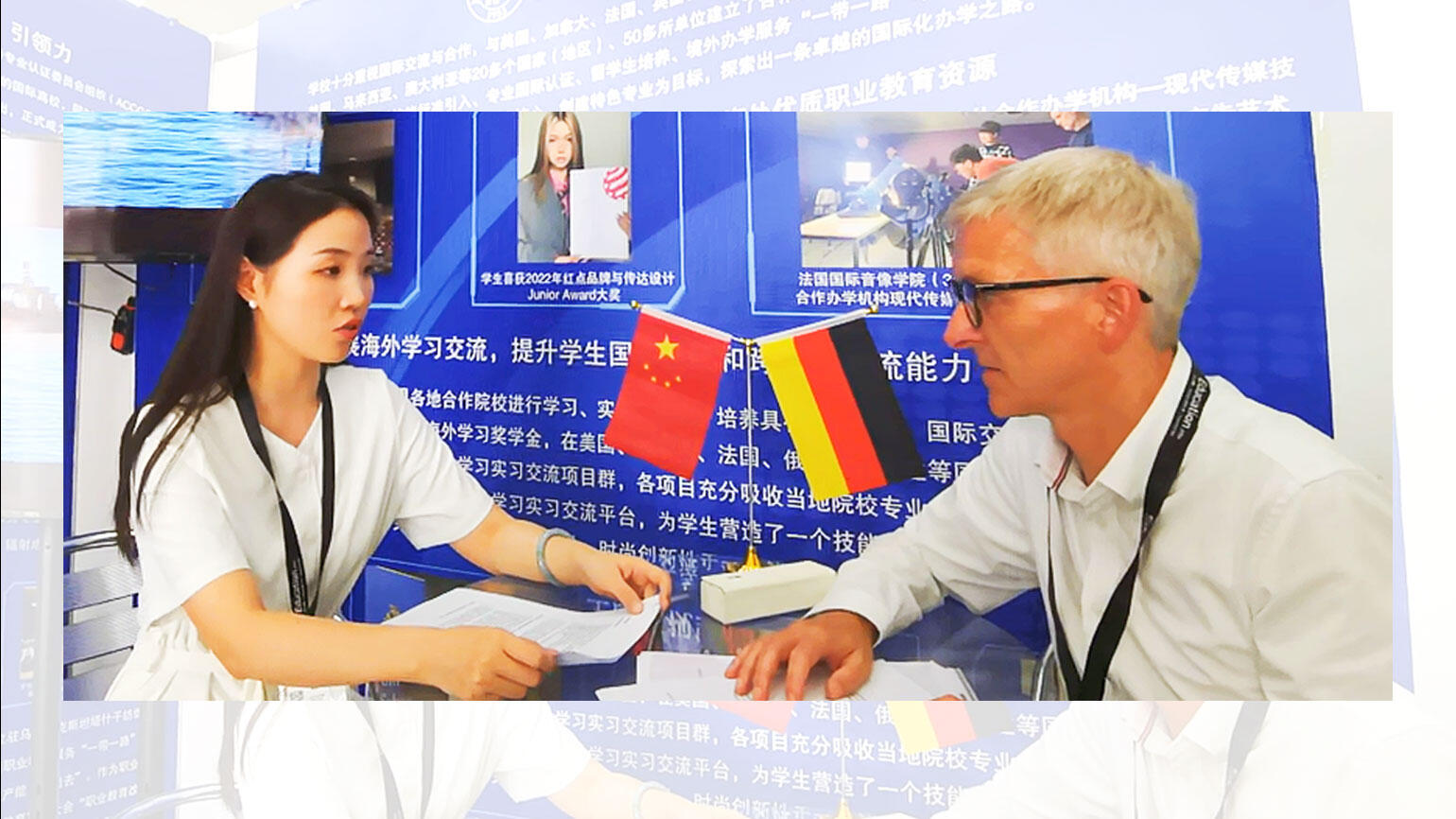
Representative of a vocational school in Shanghai
German educational institutions can utilise advantages and strengthen cooperation.
The support required for Chinese vocational schools, including establishing the overall structure for the integration of school and company-based training and the specific implementation of training units in line with a remit are precisely those elements which the German vocational education and training industry has been involved with for a long time.
According to statistics from the iMOVE Provider pool, there are currently 122 German training providers working in China, or who have an interest in cooperating with Chinese partners (as of: September 2023). Training providers which are not yet doing business in China are ready, however, to cooperate with interested parties in China.
A few of the German educational institutions interviewed said that they are mainly offering practical training for the vocational school students and for advanced teacher training in China. The majority of vocational schools interviewed also talked about their current international cooperation agreements. Some have introduced the German dual training examination and certification system. The German vocational education and training system and its services are highly rated by Chinese institutions, and they are open to cooperating with German VET institutions.
- Author: Yun Yue, iMOVE contact point, China